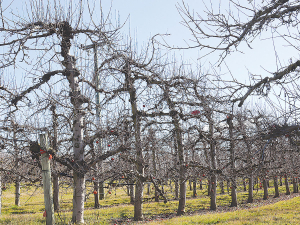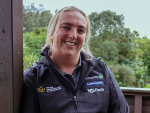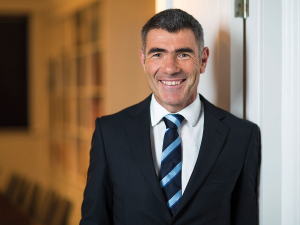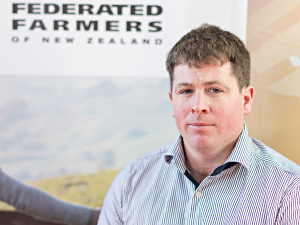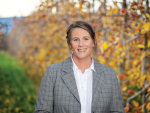Hawke's Bay apple growers are holding their collective breath waiting to see whether spring will bring good or bad news.
NZ Apples and Pears market access manager Danielle Adsett told Hort News that spring will provide orchardists with the first sign of whether or not their apple trees have survived the ravages of Cyclone Gabrielle.
She says the trees are still asleep and the first indication of what might have happened to them will be at bud burst. She adds the problem will be around the root system of the trees.
“When they start to bloom and set fruit, the trees will expend quite a lot of energy and with a small root system, the question is whether or not they survive that or show signs of disease,” Adsett explains.
“That is something we are working on to help growers.
“We have given advice post cyclone about what management techniques they could do to help the survivability of their trees.”
Adsett says it depends on the viability of individual trees to crop. She explains that if a number of trees in a block are diseased, then it’s likely the orchardist will pull out all these trees, because it wouldn’t be viable to have a block that’s producing a reduced crop.
In terms of the recovery in Hawke’s Bay, Adsett told Hort News that orchardists will be in different positions. She says some will have dug out the silt from around their trees if they could, while others may have been waiting to see what financial packages the government had to offer.
She says NZ Apple and Pears is aware that 80% of the growers in Hawke’s Bay that have been affected by Cyclone Gabrielle have orchards that are 100 hectares or less in size.
“Larger growers have also been affected, but it’s essentially the ‘mum and dad’ orchardists that are the worst hit,” she says.
For the small orchardists, there is less ability to ‘resize’ their operations, whereas it may be easier for the larger operations to do this because these people have more land. Adsett says there are some areas such as the Esk Valley where apple trees are covered in up to two metres of silt and there will be areas that growers will deem to be too high risk to plant again. However, she notes that in places where the stopbanks have been repaired, people may go ahead and replant.
“How the industry builds out of this will be really interesting,” she says. “That’s why we are very grateful for the finance scheme proposed by Grant Robertson that, on the face of it, looks good. Hopefully, our members take it up if they’re in a position to do so and there is an opportunity to build back better.”
Adsett believes this would enable growers to incorporate new orchard designs allowing for future automation, and planting some of the emerging apple varieties, which are ideally suited to new markets – especially those in Asia.
Adsett adds that since then there has been a massive investment by growers in new technologies.
“These involve such things as picking platforms that make it easier to attract a wider labour pool, but the overall aim of this investment is designed to negate some of the increasing production costs.”




